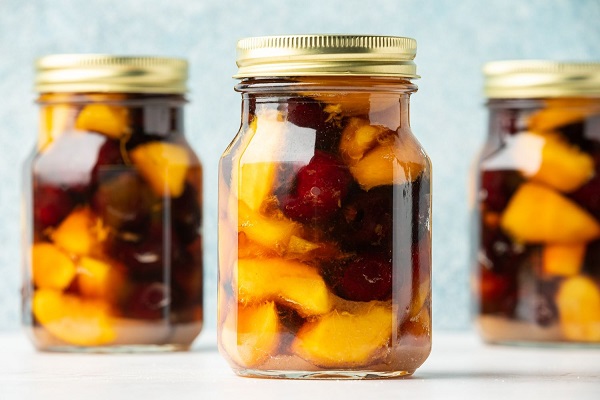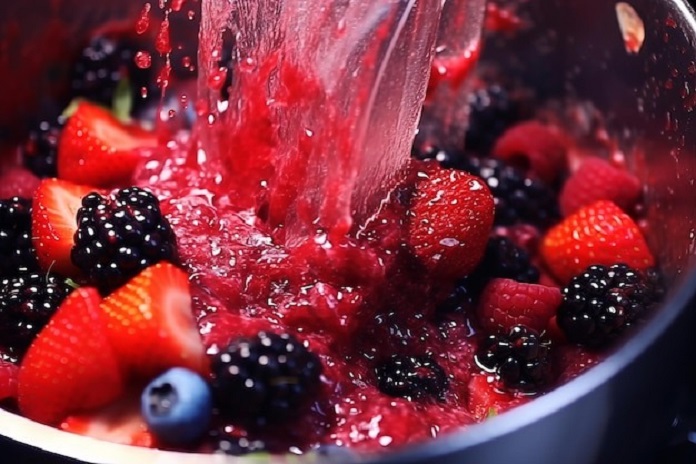On October 20, we celebrate, National Brandied Fruits Day, a day to celebrate sweet and fruity with a rich, warm depth from the brandy. Did you know that branded fruit is often made by soaking fruit in brandy (or other spirits) with sugar, it’s a popular delicacy around the holidays and special occasions.
However, Brandied fruit often includes cherries, peaches, or apricots, soaked in brandy and sometimes mixed with spices and sugar. It’s a delicious treat that can be enjoyed as a topping for desserts, incorporated into baked goods, or even savoured straight from the jar.
History of National Brandied Fruit Day
Did you know that in the year 1313, people began to distil brandy in France as medicine? Where it was called ‘eau de vie,’ literally ‘water of life,’ because of its brilliant strengthening and sanitary powers. However, Brandy, because of its antibacterial components and high volume of alcohol, helps with colds and flu, among other health benefits.
Later on in 1797, George Washington began the commercial distilling of brandy to be sold as liquor, at the persuasion of his Scottish farm manager whose name called as James Anderson. Also, Washington adopted the distilling technique that Anderson learned in Scotland.
Also, with the help of Anderson’s, Washington became the owner of one of the largest distilleries in America. Who completed against Robert Liard, America’s oldest distiller, with his Applejack distillery founded in 1780 (a few years before Washington’s Mount Vernon distillery). Soon, brandy as a liquor grew in popularity in America.
Later on in the 19th century, brandied fruit became popular around the world which is now. Because there were no refrigerators, fruits easily decomposed. By adding brandy to fruits was discovered to be an easy way to preserve them. Apples, grapes, cherries, blueberries, and even peaches — any kind of fruit could be preserved with brandy.
And because brandy enhances the flavour and taste of fruits, the combo turned out to be a delicious dessert for adults.
Also, it was serves as the perfect snack in winter to warm oneself up.
| 1313 (Brandy is Distilled as Medicine) | Brandy is distilled as medicine in France because of its extraordinary sanitary and strengthening powers. |
| 1780 (Applejack: America’s Oldest Distillery) | America’s oldest distiller, Robert Liard, records his first commercial transaction of Applejack at his distillery in New Jersey. |
| 1797 (George Washington’s Commercial Distillery) | George Washington, who began distillation operations at the advice of his farm manager, became one of the biggest commercial distillers in America. |
| Mid-1800s (Brandied Fruits Gain Popularity) | Brandy, during the Victorian era of 1820–1914, is discovered to be a preservative for fruits, and soon becomes a popular dessert because mixing it with fruits enhances its taste. |

Recipe- Brandied Fruit
Ingredients:
- 4 cups of fresh fruit (e.g., cherries, peaches, apricots, or a mix)
- 1 cup granulated sugar
- 1 cup brandy (such as cognac or any preferred brandy)
- Optional: 1-2 cinnamon sticks, a few cloves, or a vanilla bean
How to make:
- Wash and pit (if necessary) your fruit. Cut it into bite-sized pieces if it’s large (like peaches or apricots).
- Sterilize glass jars and lids by boiling them in water for 10 minutes. Let them dry completely.
- Pack the fruit into the sterilized jars, leaving about 1/2 inch of headspace at the top.
- In a medium saucepan, combine the sugar with 1 cup of water. Heat over medium heat, stirring, until the sugar dissolves. Let it cool slightly.
- If using, place the cinnamon sticks, cloves, or vanilla bean into the jars with the fruit.
- Pour brandy over the fruit in each jar, filling to cover the fruit completely.
- Wipe the rims of the jars to ensure a clean seal. Screw on the lids tightly. Store the jars in a cool, dark place for at least 2-4 weeks before using them to let the flavours meld.
- After the aging period, your brandied fruit is ready to use! Enjoy it on its own, as a dessert topping, or in recipes.
Conclusion
FAQs
What is brandied fruit?
Brandied fruit is a fruit that has been preserved in brandy, often with added sugar and spices. The result is a sweet, flavorful treat with a rich, warming taste from the brandy.
How long does it take for brandied fruit to be ready?
For optimal flavour, brandied fruit should be allowed to steep for at least 2-4 weeks. This allows the flavours to meld and the fruit to absorb the brandy. It can be stored for several months.
How should I store brandied fruit?
Store brandied fruit in a cool, dark place. Once opened, keep it refrigerated to maintain freshness.
How long can I keep brandied fruit?
Properly stored, brandied fruit can last for several months to a year. If you notice any off smells or mould, discard it.
Can I make a non-alcoholic version?
Yes, you can substitute the brandy with a non-alcoholic option like fruit juice or flavored syrup, but the flavour profile will be different.
Also, read more about National Breadstick Day – October 25, 2024
